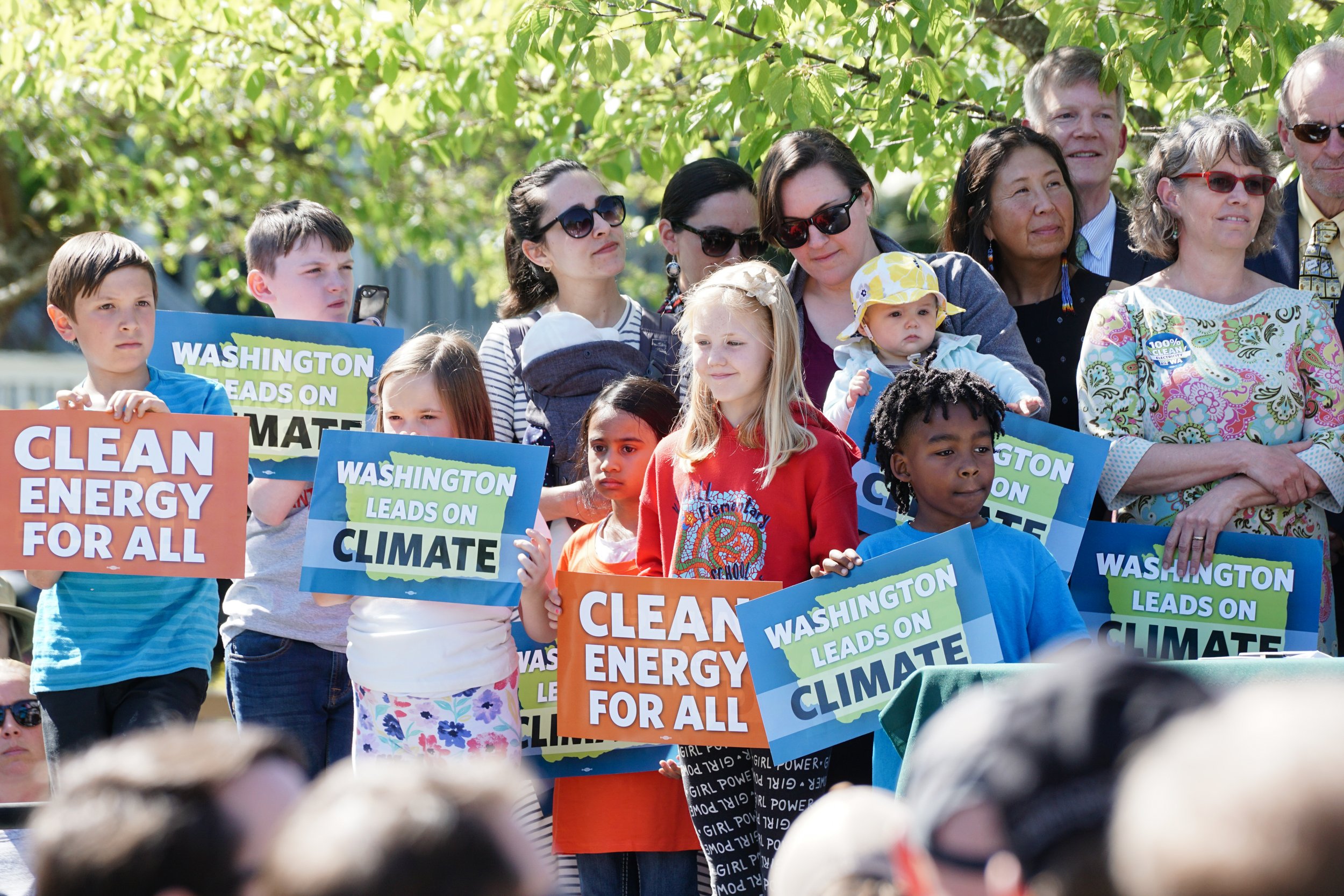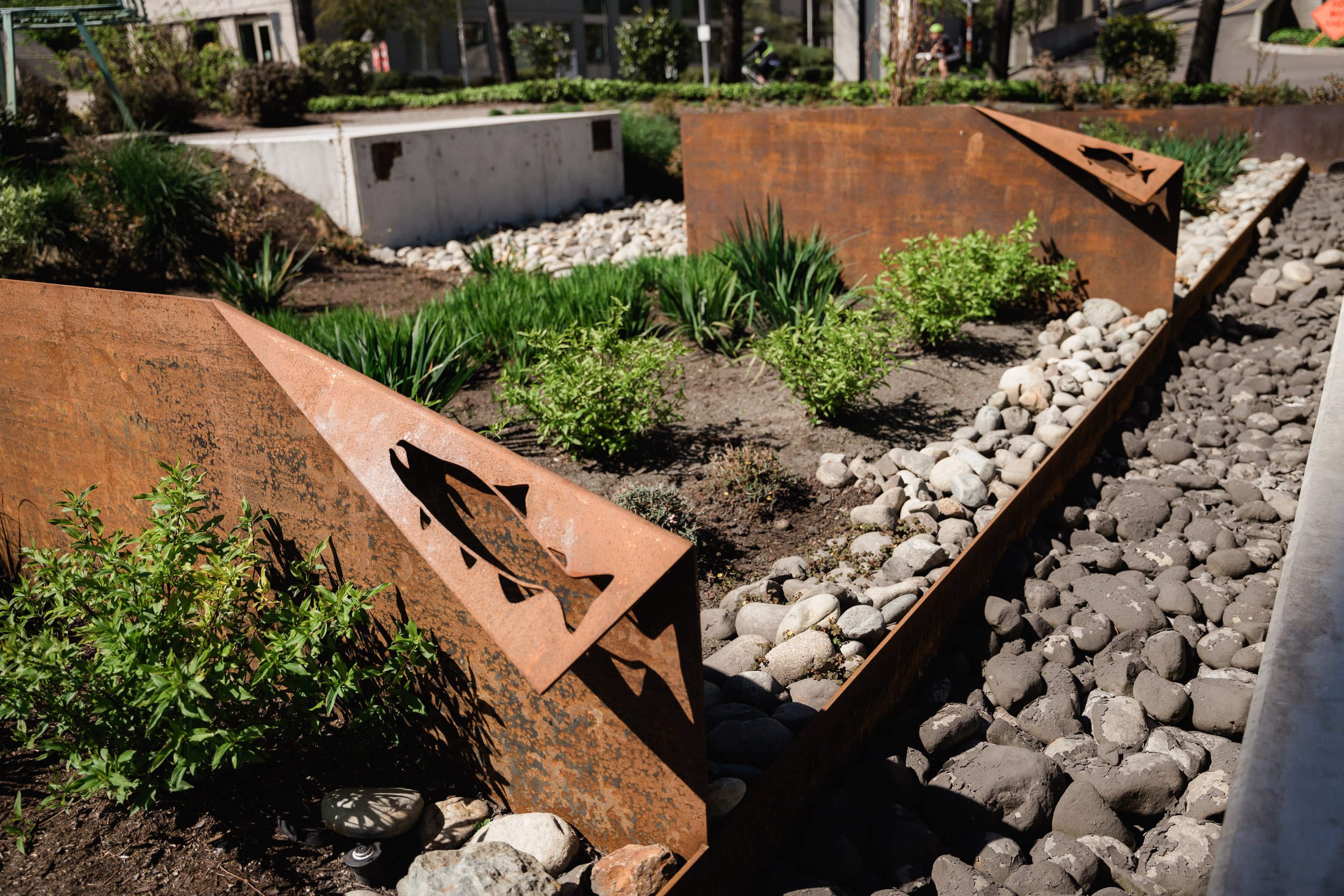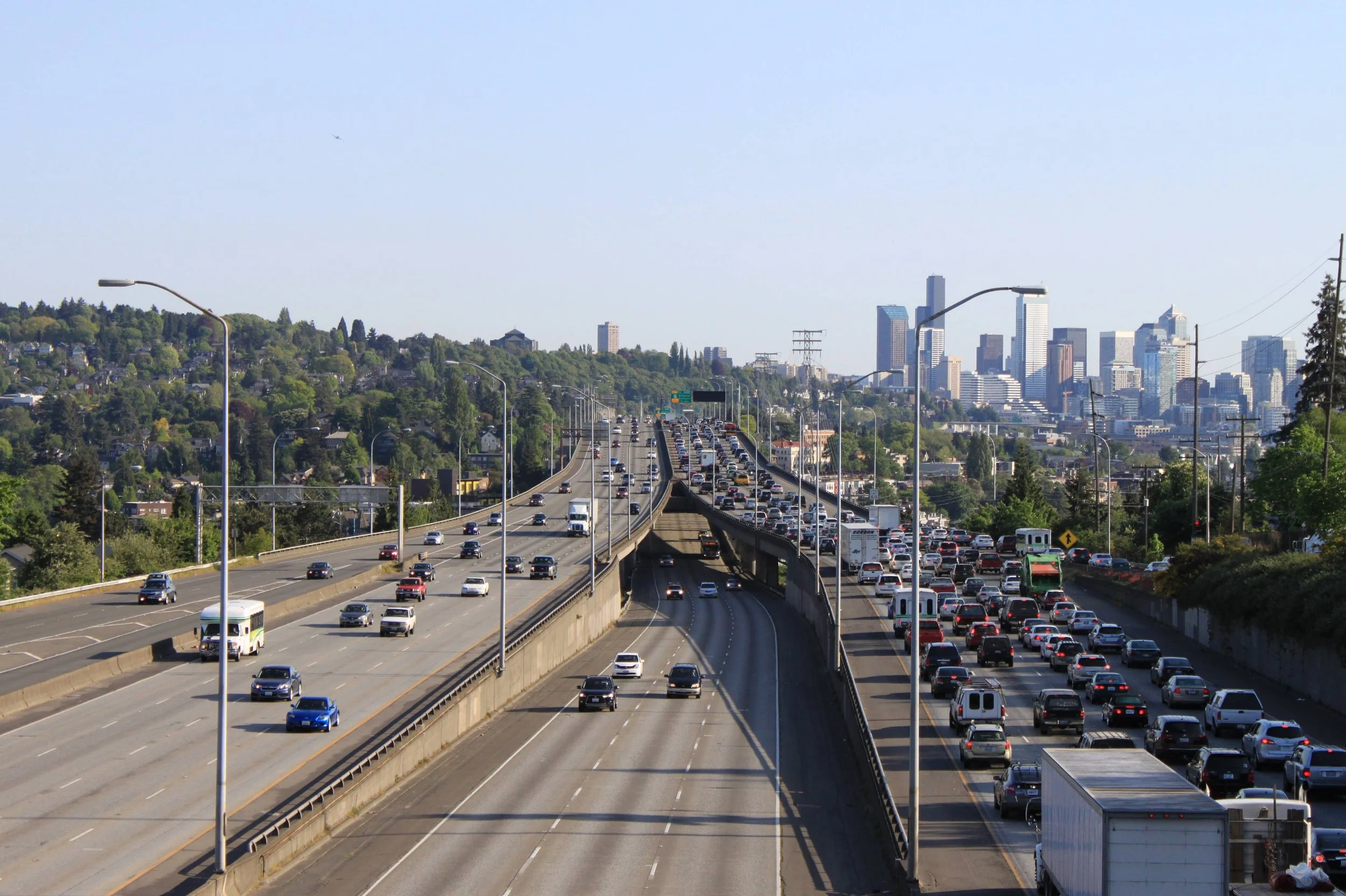This past month was a busy one for The Nature Conservancy’s state Government Relations team in Olympia, and we weren’t alone.
More than 80 citizen advocates visited Olympia to take part in more than 70 meetings with legislators and their staff members on Forest & Community Resilience Advocacy Day (Feb. 9) and Floodplains by Design Lobby Day (Feb. 22). These two days were packed with meetings with state representatives and senators whose districts are home to priority sites for forest health and Floodplains by Design projects.
On Feb. 9, members of the Forest & Community Resiliency Roundtable braved icy roads and snow to travel to the Capitol and talk about what makes our forests and forest communities healthy and resilient to disturbance from fire, disease, economic shifts and climate change. Despite the closure of all three passes and several airports, representatives from all of Washington’s forest collaboratives were joined by members of the Washington Prescribed Fire Council, Conservation Northwest, Sustainable Northwest and industry partners, including the Washington Forest Protection Association and American Forest Resource Council in meetings with legislators. State agency partners lent their perspective and answered questions about collaboration across boundaries. The larger group advocated with a unified voice for the Department of Natural Resources’ and state Department of Fish and Wildlife’s capital-budget requests.
On Floodplains by Design Lobby Day Feb. 22, another group of project sponsors was in town talking about ecological and economic resilience along Washington’s productive rivers. Representatives of projects from Port Angeles to Washougal to Walla Walla visited with their legislators to tell them about their on-the-ground work to improve community safety through reducing flood risk, increasing access to recreation opportunities and outdoor gathering spaces and restoring habitat for salmon and other wildlife.
Several advocates at Floodplains by Design Lobby Day, including some of our employees, were first-time visitors to the Capitol and weren’t sure what to expect going into meetings with their elected officials. Heather Cole, our Puget Sound community-relations manager, reflected on a meeting with one legislator whose district is home to a Floodplains by Design project:
“Surprisingly, I found the conversation to be relaxed,” she said. “There was a real back and forth between the small group of us and the senator. He asked good questions, knew the areas we were concerned about and showed genuine interest in our work.”
It makes a big difference to legislators when they meet with people who live and work in the districts they represent. When folks can talk with their elected officials about a special park, a stretch of river or an iconic farmstead back at home, it helps make the impacts of policy decisions made in Olympia feel more real. Another participant said it felt “very effective to have the broad level of support and participation from local [project] proponents. ... It provided the representatives and senators with a very comprehensive picture that seemed to be appreciated.”
In addition to these targeted days of meetings, hundreds more Washingtonians participated in our partner organizations’ days of advocacy during the intervening week: Parks & Great Outdoors Legislative Day hosted by Washington Wildlife and Recreation Coalition and Washington Recreation and Park Association was held Feb. 13, and Big Tent Outdoor Coalition’s Rally Day was Feb. 15. These events also drew advocates and outdoor enthusiasts from across the state to meet with their legislators — and each other — to speak up in support of state programs that preserve and restore health to our natural and human communities.
Speaking up for nature in Olympia this session is a worthwhile way to spend a weekday and is a meaningful way to participate in the political process. As Heather put it, “Not only did we have the opportunity to talk directly with our legislators, but it was inspiring to also see other citizen lobbyists walk around the capital campus — all talking about their issues and wanting to make government that much better for the people. I would highly recommend trying it out.”
If you can’t get away from work to make the trip, try visiting your legislators at a town-hall meeting on a weekend in your district or sending them a note or an email message about issues that matter to you.



























